3-Minute Civics: What is the Executive Council?
| Published: 06-23-2020 11:48 AM |
We all know that our state government has three branches. The legislative branch is composed of the Senate and House of Representatives. The executive branch rests with the governor. And the judicial branch is represented by our state court system. Yes?
Not quite.
Something is missing from that sketch of our government. In New Hampshire, we have a unique institution called the Executive Council. As the name implies, it’s part of the executive branch of government, and it plays a significant role in our lives just like the governor does. Because you’ll be voting to determine who will represent you on the council this fall, let’s take a look at where the council comes from, what it does, and what it might mean to you.
Back in 1679, King Charles II ordered that New Hampshire be separated from Massachusetts and that a separate government be formed here. A president and council were created, and John Cutt of Portsmouth was appointed president. The council’s primary charge was to report back to the King on Cutt’s activities, especially any that might be considered disloyal to the Crown.
Let’s skip ahead almost a hundred years. Tired of royal executives who abused their power, the writers of New Hampshire’s 1784 constitution retained the five-person Executive Council as a check on the newly established state president and vice-versa. Both the governor – the title of president was changed to governor in 1792 – and the Executive Council had to approve activity, and each had veto power over the other. In 1933, Gov. John Winant opened the proceedings of the Executive Council to the public, and they remain open today. And while the responsibilities of the Executive Council have been redistributed over time, this unique form of government continues to reflect New Hampshire’s inherent dislike of authoritarianism.
So what does the Executive Council look like today, and what are its responsibilities?
The council is still made up of five members, with each member representing approximately 263,000 New Hampshire citizens. Every member stands for election every two years. As with other elected state officials, there are no term limits. Primaries for executive councilors will be held on Sept. 8 this year, and the general election will be on Nov. 3. Anyone can locate their district and Executive Councilor by going to nh.gov/council/.
The Executive Council holds a number of responsibilities. There are four primary areas in which the council continues to serve as a check on the power of the governor:
Article continues after...
Yesterday's Most Read Articles
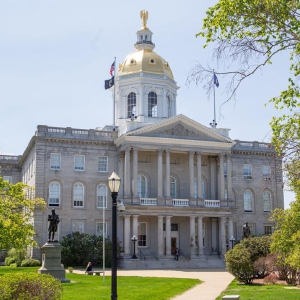 N.H. Educators voice overwhelming concerns over State Board of Education’s proposals on minimum standards for public schools
N.H. Educators voice overwhelming concerns over State Board of Education’s proposals on minimum standards for public schools
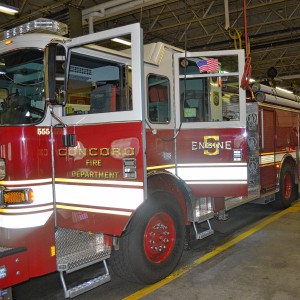 Former Concord firefighter sues city, claiming years of homophobic sexual harassment, retaliation
Former Concord firefighter sues city, claiming years of homophobic sexual harassment, retaliation
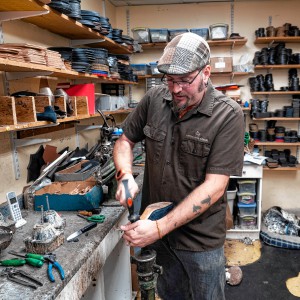 Downtown cobbler breathes life into tired shoes, the environmentally friendly way
Downtown cobbler breathes life into tired shoes, the environmentally friendly way
 Students’ first glimpse of new Allenstown school draws awe
Students’ first glimpse of new Allenstown school draws awe
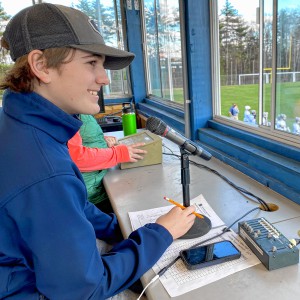 Voice of the Pride: Merrimack Valley sophomore Nick Gelinas never misses a game
Voice of the Pride: Merrimack Valley sophomore Nick Gelinas never misses a game
 A trans teacher asked students about pronouns. Then the education commissioner found out.
A trans teacher asked students about pronouns. Then the education commissioner found out.
First, the council has to approve all state contracts over $10,000. Second, it confirms or denies the governor’s judicial nominations. Third, it confirms or denies the governor’s key appointments to a long list of state agencies, boards and commissions, such as the heads of New Hampshire Fish and Game and the Department of Education, the state attorney general, and the head of the Liquor Commission. Fourth, the council has to approve any pardons the governor wishes to grant.
Together with the governor, the council also approves a significant portion of the spending in the state’s budget.
These powers may sound dry, but they’re important, and periodically the council’s role in an issue rises to a prominent enough position that it catches our attention in the news. Just this year, for example, some councilors called out Gov. Sununu regarding the process he used in disbursing $1.25 billion in the federal Coronavirus Aid, Relief and Economic Security (CARES) Act, arguing that he failed to involve both the Legislature and the Executive Council in his decision-making as required by law.
In July 2019, the governor and the Executive Council engaged in a fierce debate prior to the Executive Council’s 2-3 vote rejecting the governor’s nominee for chief justice of the New Hampshire Supreme Court. And in 2017, after extensive public debate, the council approved a two-year state contract with Planned Parenthood in the amount of $247,000 per year to provide women’s health services, like access to birth control and cancer screenings.
Each of these cases portrays a uniquely New Hampshire institution exercising a check on executive power. Over time, this will sometimes work to Democrats’ advantage, and sometimes to Republicans’. In all cases, it’s the continuation of a process handed down for generations and meant to operate in concert with our other branches of government to repel authoritarianism and guarantee democracy for generations to come.
(Tracy Hahn-Burkett lives in Bow.)
(Correction: An earlier version of this column contained an incorrect date for the Executive Council primary election.)


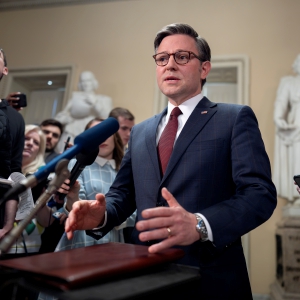 Opinion: The problem with Ukraine
Opinion: The problem with Ukraine Opinion: This Earth Day, help keep local land clean and healthy
Opinion: This Earth Day, help keep local land clean and healthy Opinion: Student power: Confronting collaborators and cowards at home and abroad
Opinion: Student power: Confronting collaborators and cowards at home and abroad Opinion: Adopting the right 306 Rules
Opinion: Adopting the right 306 Rules
